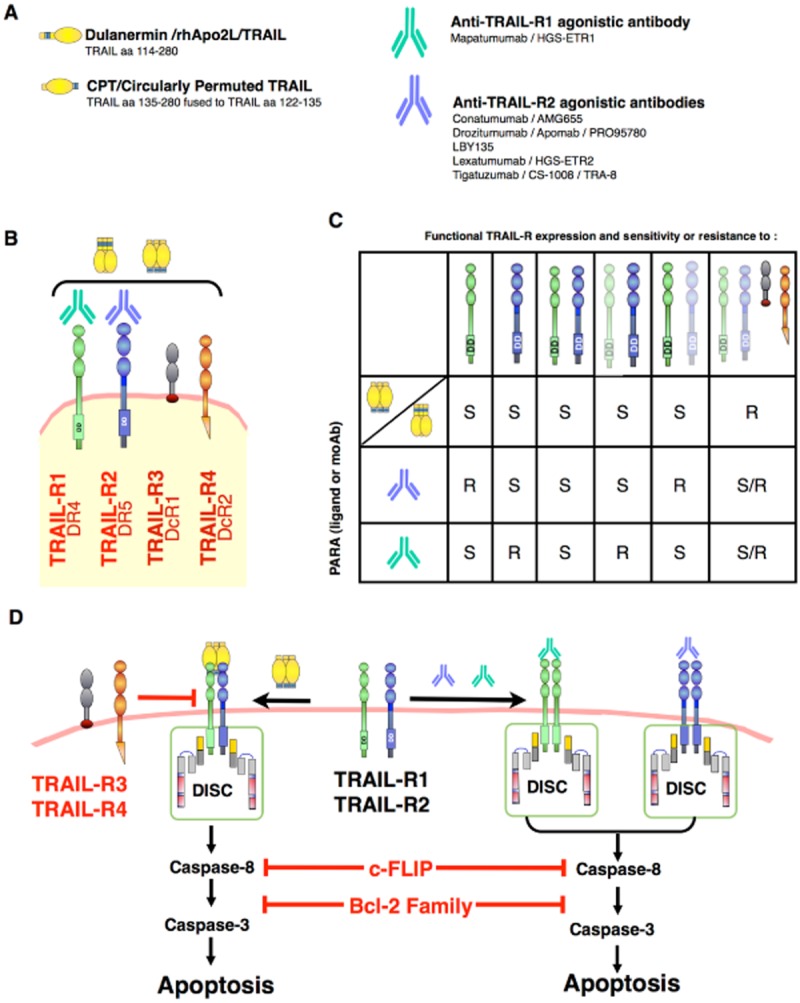Figure 2.

Fas ligand and TRAIL recombinant proteins or derivatives assessed in clinical trials: Schematic representation of (A) Fas ligand, TRAIL recombinant preparations and TRAIL agonistic monoclonal antibodies assessed in clinical trials and (B) the four main receptors to which TRAIL can bind, namely, TRAIL-R1, TRAIL-R2, TRAIL-R3 and TRAIL-R4. (C) Table representing potential pro-apoptotic capabilities of TRAIL preparations or monoclonal antibodies targeting TRAIL-R1 or TRAIL-R2 in tumour cells expressing variable amounts of TRAIL receptors. Receptors represented in light colour indicate poor engagement of the apoptotic machinery. S stands for potentially sensitive tumour cells; R, potentially resistant tumour cells; S/R, cells potentially sensitive or resistant to TRAIL-induced apoptosis depending on the selective or preferential engagement by TRAIL-R1 or TRAIL-R2. (D) Schematic representation of receptor complex formation and apoptosis induced by TRAIL recombinant preparations or monoclonal antibodies targeting TRAIL-R1 or TRAIL-R2. In all cases, overexpression of Bcl-2 family anti-apoptotic members or c-FLIP by tumour cells may impair TRAIL-induced cell death. TRAIL-R3 or TRAIL-R4 expression by tumour cells on the other hand can only impair apoptosis-induced by recombinant TRAIL preparations.
